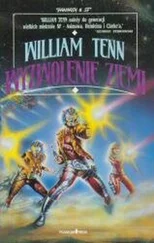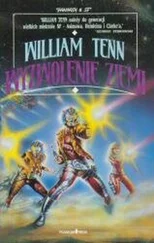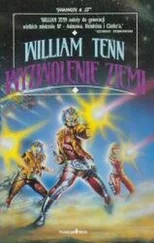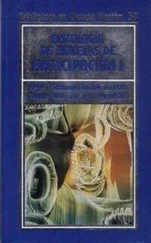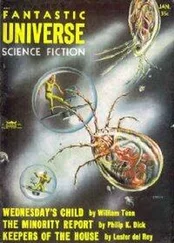William Tenn - Winthrop Was Stubborn
Здесь есть возможность читать онлайн «William Tenn - Winthrop Was Stubborn» весь текст электронной книги совершенно бесплатно (целиком полную версию без сокращений). В некоторых случаях можно слушать аудио, скачать через торрент в формате fb2 и присутствует краткое содержание. Год выпуска: 1957, Издательство: Galaxy Publishing Corporation, Жанр: Фантастика и фэнтези, на английском языке. Описание произведения, (предисловие) а так же отзывы посетителей доступны на портале библиотеки ЛибКат.
- Название:Winthrop Was Stubborn
- Автор:
- Издательство:Galaxy Publishing Corporation
- Жанр:
- Год:1957
- ISBN:нет данных
- Рейтинг книги:5 / 5. Голосов: 1
-
Избранное:Добавить в избранное
- Отзывы:
-
Ваша оценка:
- 100
- 1
- 2
- 3
- 4
- 5
Winthrop Was Stubborn: краткое содержание, описание и аннотация
Предлагаем к чтению аннотацию, описание, краткое содержание или предисловие (зависит от того, что написал сам автор книги «Winthrop Was Stubborn»). Если вы не нашли необходимую информацию о книге — напишите в комментариях, мы постараемся отыскать её.
magazine in 1957.
Winthrop Was Stubborn — читать онлайн бесплатно полную книгу (весь текст) целиком
Ниже представлен текст книги, разбитый по страницам. Система сохранения места последней прочитанной страницы, позволяет с удобством читать онлайн бесплатно книгу «Winthrop Was Stubborn», без необходимости каждый раз заново искать на чём Вы остановились. Поставьте закладку, и сможете в любой момент перейти на страницу, на которой закончили чтение.
Интервал:
Закладка:
“The law of the conservation of energy and mass. Matter, or its equivalent in energy, can neither be created nor destroyed. If you want to transfer five people from the cosmos of 2458 A.D. to the cosmos of 1958 A.D., you have to replace them simultaneously in their own time with five people of exactly the same structure and mass from the time they’re going to. Otherwise, you’d have a gap in the mass of one space-time continuum and a corresponding surplus in the other. It’s like a chemical equation—”
“That’s all I wanted to know, Pollock. I’m not a student in one of your classes. You don’t have to impress me, Pollock,” Mr. Mead pointed out.
The thin young man grunted. “Who was trying to impress you?” he demanded belligerently. “What can you do for me —get me a job in your septic tank empire? I just tried to clear up something you seemed to have a lot of trouble understanding. That’s at the bottom of our problem: the law of the conservation of energy and mass. And the way the machine’s been set for all five of us and all five of them, nobody can do anything about transferring back unless all of us and all of them are present at both ends of the connection at the very same moment.”
Mr. Mead nodded slowly and sarcastically. “All right,” he said. “All right! Thank you very much for your lesson, but now, if you don’t mind, I’d like to go on, please. Some of us aren’t civil service workers: our time is valuable.”
“Listen to the tycoon, will you?” Dave Pollock suggested with amusement. “His time is valuable. Look, Ollie, my friend, as long as Winthrop goes on being stubborn, we’re all stuck here together. And as long as we’re stuck here, we’re all greenhorns together in 2458 A.D., savages from the savage past. For your information, right now, your time is my time, and vice versa.”
“Sh-h-h!” Mrs. Brucks commanded. “Be nice. Go on talking, Mr. Mead. It’s very interesting. Isn’t it interesting, Miss Carthington?”
The blonde girl nodded. “It sure is. They don’t make people executives for nothing. You put things so—so right, Mr. Mead.”
Oliver T. Mead, somewhat mollified, smiled a slender thanks at her. “Three, then. We lay the facts before this Mr. Storku. We tell him how we came in good faith, after we were selected by a nationwide contest to find the exact opposite numbers of the five people from his time. How we did it partly out of a natural and understandable curiosity to see what the future looks like, and partly out of patriotism. Yes, patriotism! For is not this America of 2458 A.D. our America? Is it not still our native land, however strange and inexplicable the changes in it? As patriots we could follow no other course, as patriots we—”
“Oh, for God’s sake!” the high school teacher exploded. “Oliver T. Mead pledges allegiance to the flag! We know you’d die for your country under a barrage of stock market quotations. You’re no subversive, all right? What’s your idea, what’s your idea?”
There was a long silence in the room while the stout middle-aged man went through a pantomime of fighting for control. The pantomime over, he slapped his hands against the sides of his hand-tailored dark business suit and said: “Pollock, if you don’t want to hear what I have to say, you can always take a breather in the hall. As I was saying, having explained the background facts to Mr. Storku, we come to the present impasse. We come to point four, the fact that Winthrop refuses to return with us. And we demand, do you hear me?—we demand that the American government of this time take the appropriate steps to insure our safe return to our own time even if it involves, well—martial law relative to Winthrop. We put this flatly, definitely, unequivocally to Storku.”
“Is that your idea?” Dave Pollock asked derisively. “What If Storku says no?”
“He can’t say no, if it’s put right. Authority, I think that’s the keynote. It should be put to him with authority. We are citizens—in temporal extension—of America. We demand our rights. On the other hand, if he refuses to recognize our citizenship, we demand to be sent back where we came from. That’s the right of any foreigner in America. He can’t refuse. We explain the risks his government runs: loss of good will, irreparable damage to future contacts between the two times, his government standing convicted of a breach of good faith, that sort of thing. In these things, it’s just a matter of finding the right words and making them good and strong.”
Mrs. Brucks nodded agreement. “I believe. You can do it, Mr. Mead.”
The stout man seemed to deflate. “I?”
“Of course,” Mary Ann Carthington said enthusiastically. “You’re the only one who can do it, Mr. Mead. You’re the only one who can put things so—so right. Just like you said, it has to be said good and strong. That’s the way you can say it.”
“I’d, well—I’d rather not. I don’t think I’m the best one for the job. Mr. Storku and I don’t get along too well. Somebody else, I think, one of you, would be—”
Dave Pollock laughed. “Now, don’t be modest, Ollie. You’ get along with Storku as well as any of us. You’re elected. Besides, isn’t this public relations work? You’re a big man in public relations.”
Mr. Mead tried to pour all the hatred in the universe at him in one long look. Then he shot his cuffs and straightened his shoulders. “Very well. If none of you feel up to the job, I’ll take it on myself. Be back soon.”
“Jumper, Ollie?” Pollock asked as he was leaving the room. “Why not take the jumper? It’s faster.”
“No, thank you,” Mr. Mead said curtly. “I’ll walk. I need the exercise.”
He hurried through the corridor and toward the staircase. Though he went down them at a springy, executive trot, the stairs seemed to feel he wasn’t going fast enough. An escalator motion began, growing more and more rapid, until he stumbled and almost fell.
“Stop, dammit!” he yelled. “I can do this myself!”
The stairs stopped flowing downward immediately. He wiped his face with a large white handkerchief and started down again. After a few moments, the stairs turned into an escalator once more.
Again and again, he had to order them to stop; again and again, they obeyed him, and then sneakily tried to help him along. He was reminded of a large, affectionate St. Bernard he had once had who persisted on bringing dead sparrows and field mice into the house as gifts from an over-flowing heart. When the grisly objects were thrown out, the dog would brine them back in five minutes and lay them on the rug with a gesture that said: “No, I really want you to have it. Don’t worry about the expense and hard work involved. Look on it as a slight expression of my esteem and gratitude. Take it, go on take it and be happy.”
He gave up forbidding the stairs to move finally, and when he reached ground level, he was moving so fast that he shot out of the empty lobby of the building and onto the sidewalk at a tremendous speed. He might have broken a leg or dislocated his back.
Fortunately, the sidewalk began moving under him. As he tottered from right to left, the sidewalk did so too, gently but expertly keeping him balanced. He finally got his footing and took a couple of deep breaths.
Under him, the sidewalk trembled slightly, waiting for him to choose a direction so that it could help.
Mr. Mead looked around desperately. There was no one in sight along the broad avenue in either direction.
“What a world!” he moaned. “What a loony-bin of a world! You’d think there’d be a cop—somebody!”
Suddenly there was somebody. There was the pop-pop of a jumper mechanism in operation slightly overhead and a man appeared some twelve feet in the air. Behind him, there was an orange hedge-like affair, covered with eyes.
Читать дальшеИнтервал:
Закладка:
Похожие книги на «Winthrop Was Stubborn»
Представляем Вашему вниманию похожие книги на «Winthrop Was Stubborn» списком для выбора. Мы отобрали схожую по названию и смыслу литературу в надежде предоставить читателям больше вариантов отыскать новые, интересные, ещё непрочитанные произведения.
Обсуждение, отзывы о книге «Winthrop Was Stubborn» и просто собственные мнения читателей. Оставьте ваши комментарии, напишите, что Вы думаете о произведении, его смысле или главных героях. Укажите что конкретно понравилось, а что нет, и почему Вы так считаете.



